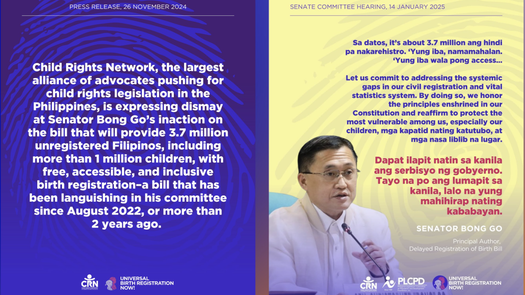February 4, 2026
 Hadijah Namyalo-Ganafa is the legal consultant in Uganda for GHAI’s Data for Health program. She conducts a comprehensive assessment of Civil Registration, Vital Statistics and Identity Management (CRVSID) legal frameworks to highlight areas where legal reform could strengthen the CRVS and ID systems in Uganda.
Hadijah Namyalo-Ganafa is the legal consultant in Uganda for GHAI’s Data for Health program. She conducts a comprehensive assessment of Civil Registration, Vital Statistics and Identity Management (CRVSID) legal frameworks to highlight areas where legal reform could strengthen the CRVS and ID systems in Uganda.
Hadijah teaches Law at Makerere University School of Law in Kampala, Uganda. She has undertaken several consultancies and published in areas relating to vulnerable groups including Women and Persons with Disabilities. Hadijah earned her Bachelor of Laws degree from Makerere University, a postgraduate Diploma in Legal Practice from Law Development Centre in Kampala, and her LLM from Cornell Law School in New York.
1. What motivated you to work at the intersection of human rights and civil registration & vital statistics (CRVS)?
CRVS captures everyone’s vital events and statistics, which is the basis for people to enjoy their human rights. States cannot effectively provide and safeguard the rights of people whose legal identity is unknown. The majority of vulnerable people (including children, women and persons with disabilities) who live in developing countries are unknown by their governments. This means that even as they continue to argue for the protection of their human rights, states underplay this through the “limited resources” argument.
I am motivated to work at the intersection of human rights and CRVS so that we can create functioning CRVS systems which feed into each other. Registration of vital events is bound to result in vital statistics which can be used for planning purposes.
Through registration, we can eradicate child marriages, improve health services, minimize deaths and also retire identities (when people die) to prevent identity fraud and thefts.
In addition, most rights are hinged on registration. For example, one cannot enjoy marital benefits without a valid marriage license. Additionally, public facilities like school and hospitals requires a birth certificate for children and a valid national identity card for adults, both of which are issued after registration.
2. How does your background in human rights law inform your CRVS work and why is it important to have lawyers involved in CRVS legal reforms?
A person that appreciates human rights law always looks for ways of making the law compliant! When I was conducting a legal review for Uganda, I was reading between the lines, instead of reading the law on the face of it. I was very interested in showing the international best practices and analysing the alignment of Uganda’s legal framework using a human rights lens.
Lawyers work as human rights advocates; others are implementers and all of them are officers of the court. These dimensions give them an edge in CRVS legal reforms because they have either been faced with some of the legal challenges during their day-to-day work or they can advocate for changes to the CRVS legal regime through lobbying Members of Parliament or litigation before courts of law.
3. What are you most excited about in your consultancy role with GHAI’s CRVS legal review project?
This consultancy role has given me direction to appreciate the role played by the law in improving the effectiveness of CRVS systems. Most importantly, this role has introduced me to a wide network of CRVS enthusiasts who are always willing to be consulted and they are very knowledgeable about a wide range of topics that are beneficial to my newfound passion!
4. What is your message to lawyers in low and middle-income countries?
Our law schools’ curricula do not expressly cover CRVS, but we interact with the CRVS providers in our daily work, and most agencies employ lawyers. Sometimes the systems work in our favor; other times, they do not. It is important to appreciate the laws that create and govern the agencies that offer CRVS services so that we are able to advocate for necessary amendments.
It is important to note that there are several laws which together create a conducive environment for CRVS to thrive and one should not restrict themselves to few laws. While conducting the legal review in Uganda, I considered thirty-two Acts of Parliament, seven Regulations and fourteen Orders, Rules and policies.
5. What are the next steps in your career?
My work with GHAI made me interested in transforming communities. When University of Warwick advertised an opportunity (the Leverhulme Trust -TRANSFORM Doctoral Scholarship), I was encouraged by Chrystie Swiney (GHAI Associate Director & Legal Adviser) to apply.
I realized that during the training on best practices, limited attention had been given to women and girls with disabilities (the Women and Children Chapter of the Toolkit was introduced after I had begun the legal review). This prompted me to look for a topic with a health equity component, human rights and CRVS.
My application was successful, and I am going to undertake a Ph.D. in Global Sustainable Development. My research will measure the efficacy of digital IDs through a rights-based paradigm and assess how the adoption and utilization of digital IDs can transform healthcare service delivery for women and girls with disabilities in Uganda.
Watch Hadijah presenting how Civil Registration helped end child marriage in Uganda.



